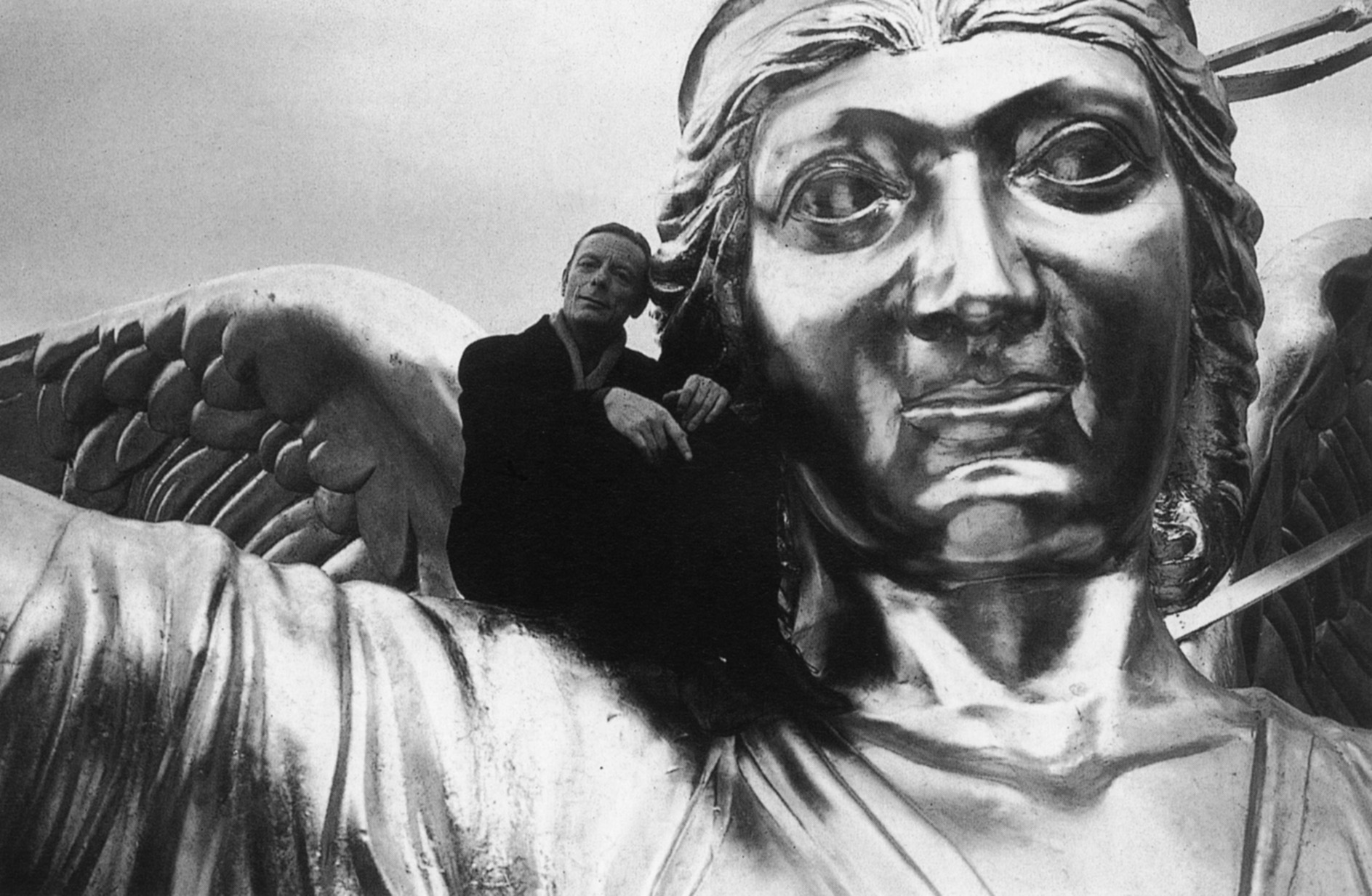| quarta-feira, março 16, 2005 |
| Mishima, Yukio |

"O Tumulto das Ondas"
Yukio Mishima
Relogio d'Agua
Tendo terminado, no meio da confusão de tantas outras leituras, esta curta obra de Mishima, não poderia deixar de colocar aqui uma pequena nota sobre o autor.
Pseudónimo de Hiraoka Kimitake :
"Prolific writer, who is considered by many critics as the most important Japanese novelist of the 20th century. Mishima's works include 40 novels, poetry, essays, and modern Kabuki and Noh dramas. He was three times nominated for the Nobel Prize for literature. Among his masterpieces is The Temple of the Golden Pavilion (1956). The tetralogy The Sea of Fertility (1965-70) is regarded by many as Mishima's most lasting achievement. As a writer Mishima drew inspiration from pre-modern literature, both Japanese and Western."
"How oddly situated a man is apt to find himself at the age of thirty-eight! His youth belongs to the distant past. Yet the period of memory beginning with the end of youth and extending to the present has left him not a single vivid impression. And therefore he persists in feeling that nothing more than a fragile barrier separates him from his youth. He is forever hearing with the utmost clarity the sounds of this neighboring domain, but there is no way to penetrate the barrier." (from Runaway Horses, 1969)
"Kimitaka Hiraoka was born in Tokyo, the son of a government official. Later he changed his name into Yukio Mishima so that his anti-literary father wouldn't know he wrote. The name Yukio can loosely be translated as "Man who chronicals reason." Mishima was raised mainly by his paternal grandmother, who hardly allowed the boy out of her sight. During World War II Mishima was excused military service, but he served in a factory. This plagued Mishima throughout his life - he had survived shamefully when so many others had been killed.
After the war Mishima studied law at Tokyo University. He worked as a civil servant in the finance ministry for a year before devoting himself entirely to writing. In 1946 Mishima met Kawabata Yasunari, who recommended Mishima's stories to important magazines. His first major work was Confessions of a Mask, which appeared in 1949. It dealt with his discovery of his own homosexuality. The narrator concluded, that he would have to wear a mask of 'normality' before other people to protect himself from social scorn.
The largely autobiographical work reflected Mishima's masochistic fantasies. His preoccupation with the body, its beauty and degeneration, marked several of his later novels. Mishima wished to create for himself a perfect body that age could not make ugly. He started body building in 1955 and he also became an expert in the martial arts of karate and kendo. Perhaps preparing for his death, Mishima liked to pose in photographs as a drowned shipwrecked sailor, St. Sebastian shot death with arrows, or a samurai committing ritual suicide." © 2003 "Books and Writers" |
| posted by George Cassiel @ 1:00 p.m. |
|
|
|
|
|
GEORGE CASSIEL
Um blog sobre literatura, autores, ideias e criação.
_________________
"Este era un cuco que traballou durante trinta anos nun reloxo. Cando lle
chegou a hora da xubilación, o cuco regresou ao bosque de onde partira.
Farto de cantar as horas, as medias e os cuartos, no bosque unicamente
cantaba unha vez ao ano: a primavera en punto."
Carlos López, Minimaladas (Premio Merlín 2007)
«Dedico estas histórias aos camponeses que não abandonaram a terra, para encher os nossos olhos de flores na primavera»
Tonino Guerra, Livro das Igrejas Abandonadas |
| |
|
|









